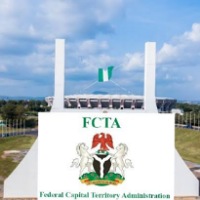Motoring
Ford revs up in China, roars past Toyota and Honda

BEIJING – Ford Motor Co. and its local partners boosted sales in China by nearly 50 percent last year, nudging past Japanese giants Toyota Motor Corp. and Honda Motor Co. to make big inroads into the world’s largest auto market.
For much of the past decade, Ford has trailed Japan’s big car makers, but a line-up of new and revamped vehicles, including the top-selling Focus, and a China-Japan territorial spat helped the U.S. company in 2013.
The Dearborn, Michigan-based automaker said on Monday that along with its local partners, it had sold 935,813 vehicles in China last year, a 49-percent increase from 2012.
Ford still lags a long way behind General Motors Co and Volkswagen AG which are both expected to announce sales of more than 3 million vehicles in China last year.
Toyota and its two local joint-venture partners sold about 917,500 vehicles in China last year, up 9.2 percent from 2012. Honda’s 2013 China volume totaled 756,882 vehicles, up 26.4 percent from 2012.
 Industry insiders and experts attributed Ford’s surge to its beefed-up product lineup. New in the showroom since late 2012 are a couple of small sport-utility vehicles and the redesigned Focus. It also added the redesigned Mondeo car, a China version of the car marketed in North America as the Fusion, to its lineup.
Industry insiders and experts attributed Ford’s surge to its beefed-up product lineup. New in the showroom since late 2012 are a couple of small sport-utility vehicles and the redesigned Focus. It also added the redesigned Mondeo car, a China version of the car marketed in North America as the Fusion, to its lineup.
What also helped Ford was a sales crisis that hit Japanese brands in the fall of 2012 and lingered through 2013.
Violent protests and calls for boycotts of Japanese products broke out across China in 2012 after Japan nationalized two East China Sea islands, known as the Diaoyu in Chinese and Senkaku in Japanese, by buying them from their private owners. Japanese car makers’ sales in China fell sharply as a result.
Toyota and other Japanese companies clawed back sales through 2013 as tensions eased, but Tokyo-Beijing relations could tip again at any time.
Japanese Prime Minister Shinzo Abe last month visited the Yasukuni Shrine, seen by critics as a symbol of Japan’s wartime aggression, which infuriated China and South Korea and prompted concern from the United States about deteriorating ties between the North Asian neighbors.
TOYOTA’S ELUSIVE MILLION MARK
Toyota China sales and marketing executives said key new products, including the redesigned RAV4 Toyota-branded compact sport-utility vehicle which was launched during the fourth quarter, helped it recover much of the ground the company lost after a dispute over a group of islets in the East China Sea fanned anti-Japan sentiment in China.
Now, Toyota said it aims to sell more than 1.1 million vehicles in China this year.
That is a milestone Toyota has been trying to clear since the late 2000s.
A decade ago, Toyota’s chief executive Akio Toyoda, who back then ran the company’s China operations, and his lieutenants set the “aspirational” goal of selling one million cars annually by 2010.
Also likely to pressure the performance of Toyota and other Japanese brands in China is the surge in sales volume by Ford.
Though Ford surpassed Toyota and Honda in China sales volume, it still has miles to go to break into the China’s top-three. The likes of GM and Volkswagen AG are well ahead, and it still has considerable ground to make to catch Nissan Motor Co. and Hyundai Motor Co.
According to consulting firm LMC Automotive, the Volkswagen Group is forecast to sell about 3.2 million vehicles in 2013 in China, up from 2.8 million vehicles it sold in 2012. GM is also expected to have sold more than 3 million vehicles last year.
Nissan, meanwhile, was aiming to sell 1.25 million vehicles last year. Consulting firm LMC Automotive said Hyundai Group’s sales in China last year should have reached 1.64 million vehicles, up from 1.4 million last year.
– REUTERS
Motoring
FCTA Pulls Plugs On Taxi Rank, Terminal Services Contracts

The Federal Capital Territory Administration (FCTA) has ended contracts with taxi rank and terminal operators due to their failure to meet engagement terms and conditions.
Mr. Ubokutom Nyah, the Mandate Secretary of the Transportation Secretariat, FCTA, made this announcement during a meeting with managers of these terminals and taxi ranks in Abuja.
Nyah clarified that due to the operators’ failure to fulfill their engagement terms, the FCTA had to terminate their contracts.
He instructed them to transfer control of the ranks to the Administration within three months, starting from Nov. 21.
He lamented the presence of unauthorized motor parks in the city and assured the readiness of the Administration to establish proper taxi ranks and terminals in the capital.
He revealed that personally visiting the city’s taxi ranks, terminals, and unauthorized motor parks gave him direct insight into the poor condition of these facilities.
He emphasized that as the federal capital city, Abuja deserves better, highlighting that the poor condition of these facilities attracts various criminal elements.
He said “We must rid Abuja of all these. I have gone round the taxi ranks, and of all the places I visited, not one is worthy to be called even a village motor park.”
The Mandate Secretary stressed that the intention wasn’t punitive; rather, it aimed to revamp the sector, introduce new engagement terms, and modernize taxi ranks and terminals in the federal capital.
He also highlighted the plan to increase the number of terminals and ranks where necessary, which would positively impact the administration’s revenue.
He emphasized that this measure was part of a broader effort to eliminate illegal motor parks in Abuja and curb the associated criminal activities.
In response, Mr. Adebisi Lawal, the Operator of Jahi Taxi Rank, praised the administration’s initiative to modernize the taxi ranks and terminals.
Lawal urged the administration to prioritize current operators’ involvement in the selection of new developers for the modernization of the taxi ranks and terminals.
Motoring
Power Show Sees Soldiers Batter LASTMA Officer

It was a show of power at the Ojota area of Lagos on Monday as soldiers pummeled an officer of the Lagos State Traffic Management Authority, (LASTMA).
Eyewitness accounts claim that the ugly scene played out around 8am, and saw about eight soldiers pounce on the yet to identified LASTMA official, while his colleagues took to their heels.
The video of the melodrama has gone viral, where the LASTMA official was appealing to the soldiers, who appeared bent on ‘teaching him a lesson’.
This onslaught comes on the back of a reported assault of a soldier at the same location by LASTMA officials last week.
It would appear that what played out today was the army asserting its authority and defending their khaki as the armed soldiers carried out what looked like a revenge mission.
Eyewitnesses further averred that the victim was rushed to a nearby hospital, after the soldiers left the scene.
It was gathered that the authorities at LASTMA has reported the incident to the military authorities who are said to be looking into the matter.
Meanwhile many members of the public are rejoicing that the soldiers have taught the crude LASTMA official that power is stronger than power, for all their atrocities against motorists on Lagos roads.
Motoring
Intra-City Fares Skyrocket By 98% Month-On-Month – NBS
The impact of the removal of subsidy on Premium Motor Spirit (PMS), otherwise known as petrol, has seen the pump prices of the product skyrocket with a corresponding increase in the cost commercial transportation in Nigeria.
According to the National Bureau of Statistics (NBS), intra-city bus transportation fares across Nigerian cities, measured between May and June 2023, increased from N649.59 to N1,285.41 in June 2023.
This translates to 98 percent growth or N635.82 within the month in view.
The NBS made the data available in its Transport Fare Watch report for June 2023.
In the report, the NBS also shared the breakdown of bus journeys within the cities per drop for constant routes; bus journey intercity (state route); charges per person, amongst others.
On a year-on-year basis, the report has it that bus fares rose by 120.63 percent from N582.61 paid by commuters in June 2022.
The average fare paid by commuters for bus journey intercity per drop rose to N5,686.49 in June 2023 compared to N4,002.16 in May 2023 indicating an increase of 42.09 percent, month-on-month.
The report read, “The average fare paid by commuters for bus journeys within the city per drop increased by 97.88 per cent from N649.59 in May 2023 to N1,285.41 in June 2023.
On a year-on-year basis, it rose by 120.63 per cent from N582.61 in June 2022.
“In another category, the average fare paid by commuters for bus journey intercity per drop rose to N5,686.49 in June 2023, indicating an increase of 42.09 on a month-on-month basis compared to N4,002.16 in May 2023.
“On a year-on-year basis, the fare rose by 55.25 per cent from N3,662.87 in June 2022.”
Biztellers reported that the twin forces of forex pressure and increasing price of Brent in the global market would likely see the pump prices of petrol, increased again in no distant time in Nigeria.











